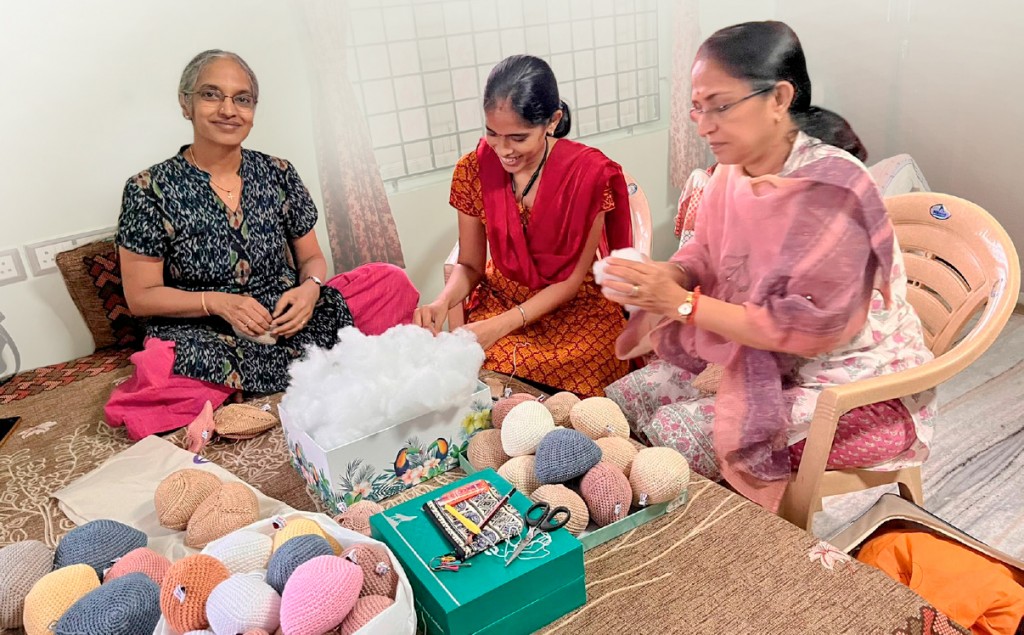She was diagnosed with breast cancer in 2019 and “struggled with the shock that one of my breasts would be removed. I wasn’t thinking about the pain as much as I was thinking about the embarrassment… my body was never going to look normal again,” says Dipmala Chipode, a 29-year-old breast cancer survivor from Nashik, Maharashtra. Post- surgery her doctor asked her if she would want to try a knitted knocker, a handmade breast prosthesis for women who have undergone mastectomy, lumpectomy, and radiation. “I said yes immediately!”

RC Nasik Grapecity, RID 3030, in association with RC Akola, is making available these breast prostheses at 12 cancer hospitals in Nashik and Akola. “When it comes to breast cancer the rehabilitation is inchoate,” says Dr Aabha Pimprikar, a club member. As a clinical research coordinator at Curie Manavata Cancer Centre, Nashik, “I see the sad plight of these women. My research led me to understand that not only do they go through unimaginable pain but also silently suffer the stress of ‘not being able to look like a woman’ post-surgery. Not only does the surgery leave a scar but the trauma lasts for life.”
Coming from poor, rural backgrounds these women cannot afford silicone prostheses. “It takes about a year for a surgical scar to heal completely. But to create an illusion of a full breast immediately after surgery, some women stuff handkerchiefs, paper, or cotton in their bra,” says Aabha and adds that post-surgery this may lead to infection.
Post mastectomy, women go through pain and suffer the stress of not looking feminine. The trauma lasts for life.
– Dr Aabha Pimprikar, member, RC Nasik Grapecity
“After undergoing this surgery, it is humiliating to be made fun of or treated like an outcast because people think we are cursed,” says Dipmala adding that she did not want to talk to anybody about it because “I did not want to be laughed at.” All thanks to the knitted knockers she feels “confident and I’m able to attend weddings and religious celebrations wearing a sari and a blouse.”
When compared to the traditional breast prosthetics, the knitted knockers are soft and comfortable and can be worn within two months of surgery, says Aabha. “They can give a woman her figure back and at the same time make her feel confident and whole again.”

The clubs have partnered with Saaisha India Foundation, a Mumbai-based NGO, to source prostheses that are made by avid and experienced crocheters and knitters. The NGO is registered with Knittedknockers.org of the US and the knockers are made from patterns specified by them but designed to local needs.
In the initial phase of the project, close to 10 pairs of knockers were distributed in two major cancer hospitals in Nashik. The positive response from the patients and the support from the hospitals, got the clubs to think of scaling up the project. It was later undertaken as an RID 3030 project and clubs across the district have so far distributed 6,000 knockers.
Users have confirmed that besides being soft and eco-friendly, the prosthetic has provided them comfort, and confidence and helped improve their posture, says Aabha. “When we started, we had a very small number in mind and never thought it would become a district-level project. Now we get frequent calls from hospitals requesting some more knockers,” she smiles.
The project was inaugurated by DGE Dr Anand Jhunjhunwala in the presence of DGN Asha Venugopal, who is advocating this project throughout the district.






